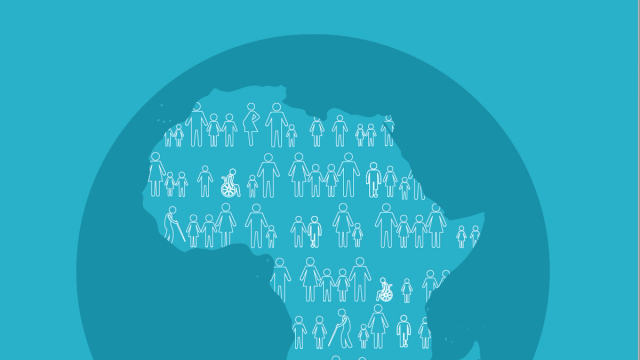Launch of the 2020 Africa SDG Index and Dashboard Report
September 30 - Today, the Sustainable Development Solutions Network (SDSN) launched the 2020 Africa SDG Index & Dashboards Report. The report synthesizes the most recent, available data on the SDGs to support national and regional discussions on where each African country stands with respect to achieving the SDGs. Since it was first produced in 2018, this annual flagship report has provided the most up-to-date data to track and rank the performance of African countries on the SDGs. As an unofficial monitoring tool, the report is complementary to official efforts to monitor the SDGs.
The 2020 Africa SDG Index and Dashboards Report focuses on the theme of “leave no one behind,” one of the founding principles of the 2030 Agenda. The report describes the intersecting factors that hinder the African countries’ ability to achieve the “Leave no one behind” commitment, including an analysis of the likely impact of the global COVID-19 pandemic. The global pandemic is a humanitarian and economic crisis with serious immediate and also potentially long-term impacts, particularly on the social and economic goals. An additional 60 million Africans could be pushed into poverty and food insecurity is expected to nearly double. An estimated 110 million African children and youth are out of school, fragile health care systems are being tested, and women are at risk of being left out even more. Slow economic activity and lockdowns will increase unemployment and debt, while decreasing remittances, development assistance and domestic revenue are added risks to financing for development and SDGs.
To rebuild, the report recommends that all countries adopt the framework of sustainability. African governments are relatively well-positioned to do so, as the updated implementation survey reveals. This survey gives a snapshot of six strategic aspects for SDG implementation efforts in Africa namely, national strategies and baseline assessments in the executive, budgeting practices and procedures, stakeholder engagement, coordinating units in the executive, legislative actions, and main challenges for implementation. All the country experts who validated results reported that lack of funding and resources is one of the most important challenges both in terms of SDG implementation and monitoring.
The Africa SDG Index & Dashboards results show that North Africa is the best-performing region on average, while Central Africa is the worst-performing. Tunisia has replaced Mauritius as the top-ranking country. Overall the average score across all countries is 53.82/100, which is slightly higher than the 2019 average, but still implies that, four years in, the continent as a whole is only halfway to achieving the SDGs. The goals facing the greatest challenges are SDG 3 (good health and wellbeing), SDG 9 (infrastructure), and SDG 16 (peace, justice and strong institutions). The goals where the continent is performing better are SDG 13 (climate action) and SDG 12 (responsible consumption and production).
This year’s focus on the principle of leaving no one behind led to the creation of a new Leave No One Behind (LNOB) Index that tracks inequalities within African countries. Algeria tops this ranking, which is designed to bring out inequalities in access and outcomes that may be hidden by the average values that dominate the overall SDG Index. Overall the results show that all African countries are currently struggling to tackle all kinds of inequalities – which will likely by exacerbated by the COVID-19 pandemic.
The Report is a call for action not only to meet the SDGs but also to ensure timely and high-quality data on the SDG indicators. It is a relevant tool to for all stakeholders at national level in order to identify priorities for action, understand key implementation challenges as well as track progress to ensure accountability and gaps closing to achieve the SDGs by 2030.
The launch webinar on September 30th featured a rich and nuanced discussion about the impact of COVID-19 on SDG implementation and achievement across the continent. The panelists were Mories Atoki, CEO of the African Business Coalition for Health (Nigeria), Judith Kaulem, Executive Director of the Poverty Reduction Forum Trust (Zimbabwe), and Dr. Miriam Were, Commissioner, The Lancet Commission on COVID-19 (Kenya), moderated by Eve de la Mothe Karoubi, senior manager at SDSN. All three women leaders agreed that the pandemic exacerbated existing structural issues and development deficits facing the continent and highlighted the major challenges left to overcome between now and 2030. Despite the current crisis, they expressed hope that governments are shifting course, civil society and the private sector are engaged, and that youth are driving innovations. Click hereto view the webinar recording.
****
The 2020 Africa SDG Index & Dashboards Report was prepared by a team of independent experts at the SDSN and the SDG Center for Africa, thanks to the financial support of the Mo Ibrahim Foundation.
Please visit the report website at https://sdgindex.org/reports/2020-africa-sdg-index-and-dashboards-report/
For more information, contact info@unsdsn.org
